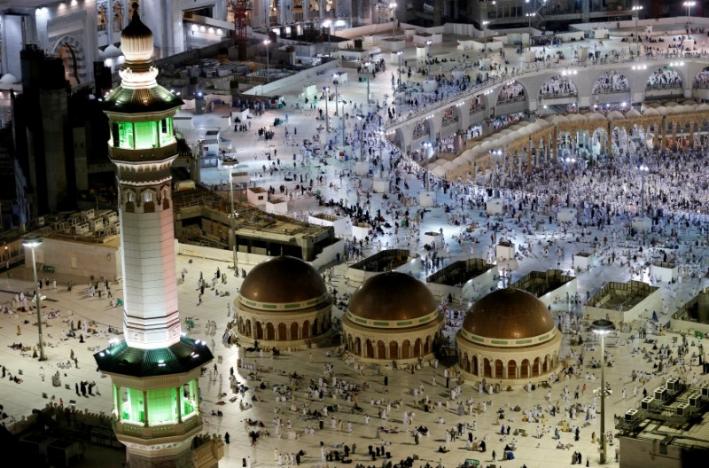Saudi Arabia has decided to impose a 24-hour curfew in the Muslim holy cities of Mecca and Medina on Thursday, in an effort extending the kingdom's measures to contain the spread of the novel coronavirus. The decision comes just days after the kingdom urged Muslims throughout the world to put their preparations for the annual Hajj pilgrimage on hold until there is more clarity on the pandemic.
The Saudi Ministry of Interior said in a statement that authorities are set to implement a full-day curfew in Mecca and Medina, but with the exception of essential workers and adult residents who will be allowed to leave their homes to buy food and seek medical care between 6 am and 3 pm. The statement also added that cars in the residential districts of Mecca and Medina will be allowed to carry only one passenger in addition to the driver during the curfew, to limit the possible transmission of the virus.
Mecca and Medina under 24-hour curfew

The 24-hours curfew effective from Thursday, could be extended "until further notice." During this time, "it is prohibited to practise any commercial activities within the residential neighbourhoods of the cities of Mecca and Medina, except for pharmacies, foodstuff stores, gas stations and banking services," the royal decree said.
Meanwhile, some neighbourhoods in Mecca and Medina were already under complete lockdown, but in the rest of the cities, the curfew was previously from 3 pm to 6 pm.
How Saudi Arabia is combating coronavirus
The kingdom of Saudi Arabia has taken some very drastic steps to combat the COVID-19 disease. So far, it has halted all international flights, closed most public places, and heavily restricted internal movement with entry and exit to capital Riyadh, Mecca, Medina, and Jeddah limited.
It has closed down all the regions with large population of migrant workers, including the eastern oil-producing province of Qatif where most of the kingdom's earliest COVID-19 cases were reported among Shi'ite pilgrims who were returning from Iran. The region has been on lockdown for almost four weeks.
Muslim pilgrimage of Umrah and Hajj affected
In a rare move, Saudi has also suspended the year-round Umrah pilgrimage and banned public prayers at all mosques including the holy mosques at Mecca and Medina. The kingdom has also urged Mulsims throughout the world to deter their preparations for the annual Hajj pilgrimage this year.
On Wednesday, April 1, the kingdom's minister for Hajj and Umrah, Mohammed Saleh Banten urged millions of Muslims throughout the world to put their plans for the annual Hajj pilgrimage on hold until there is more clarity on the pandemic. The annual Hajj pilgrimage which serves as a major source of income, after oil and gas, to the Saudi is scheduled for late July this year.
Saudi's announces aid to help economy hit by pandemic
The oil-rich kingdom has announced economic stimulus measures and raise around 120 billion Saudi riyals or approximately $32 billion to support local businesses hit by the pandemic.
Saudi Arabia has recorded at least 1,885 cases of coronavirus infection and more than 21 people have died due to the deadly virus, the most in the GCC countries.
Lockdowns in other GCC countries
Meanwhilee, other Arab nations, including Bahrain, Kuwait, Qatar, Oman, and the UAE, have already imposed or are considering lockdowns in neighborhoods with large number of foreign labourers.








